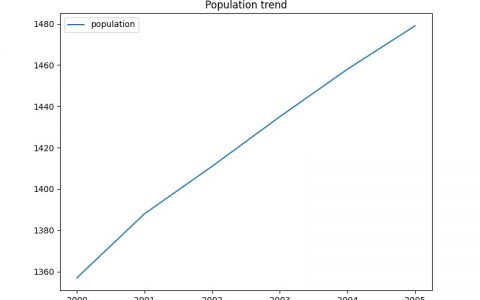pandas.str.startswith()函数是pandas库中字符串相关的方法之一,其作用是用来判断字符串是否以给定的子字符串开头,并返回判断结果的布尔值。
该函数的语法格式如下:
Series.str.startswith(self, pat, na=None, case=True)其中,各参数的含义如下:
pat:需要匹配的子字符串或正则表达式模式;na:表示处理缺失值的方式,可选参数为None(默认值)、True、False,分别表示对缺失值的处理方式为不判断、将缺失值视为开头、将缺失值视为不匹配;case:表示是否区分大小写,可选参数为True(默认值)和False。
下面通过两个实际的例子来说明pandas.str.startswith()的使用方法。
示例1:在DataFrame中使用startswith()
假设我们有以下的DataFrame:
import pandas as pd
df = pd.DataFrame({
'A': ['apple', 'banana', 'orange', 'grape'],
'B': ['apple juice', 'pear cider', 'orange juice', 'grape soda']
})接下来,我们可以使用startswith()方法筛选出所有以'apple'开头的单词,代码如下所示:
result = df[df['A'].str.startswith('apple')]
print(result)输出结果如下:
A B
0 apple apple juice示例2:用startswith()判断文件名是否以指定的字符串开头
假设当前目录下有一些文件按照日期命名,如'2021-01-01_report.csv','2021-01-02_report.csv'等,现在我们需要使用startswith()方法判断文件名是否以指定的日期开头。
代码如下所示:
import os
path = './' # 当前路径
date = '2021-01-01'
for file in os.listdir(path):
if file.startswith(date):
print(f'{file} starts with {date}')
else:
print(f'{file} does not start with {date}')执行结果如下:
2021-01-01_report.csv starts with 2021-01-01
2021-01-02_report.csv does not start with 2021-01-01
2021-01-03_report.csv does not start with 2021-01-01本站文章如无特殊说明,均为本站原创,如若转载,请注明出处:详解pandas.str.startswith()(检测字符串开头)函数使用方法 - Python技术站

 微信扫一扫
微信扫一扫  支付宝扫一扫
支付宝扫一扫 
